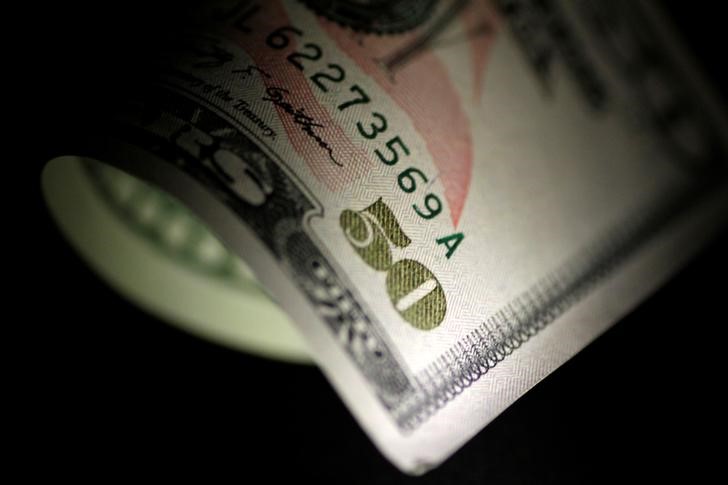Denison Mines announces $250 million convertible notes offering
By Peter Nurse
Investing.com - The dollar weakened in early European trade Monday, with positive economic data out of Asia increasing optimism of a global recovery even given the continuing rise of new Covid-19 cases.
At 3:55 AM ET (0755 GMT), the Dollar Index, which tracks the greenback against a basket of six other currencies, was down 0.2% at 92.597. EUR/USD climbed 0.1% to 1.1848, USD/JPY fell 0.1% to 104.53, while the risk sensitive AUD/USD rose 0.3% to 0.7287.
Economic numbers from Japan saw the world’s third-largest economy moving out of recession, with its economy growing an annualized 21.4% in the third quarter, gradually recovering from the damage caused by the coronavirus pandemic.
Additionally, China’s industrial output rose at a faster-than-expected pace in October, while retail sales continued to recover.
The USD/CNY pair was down 0.4% to 6.5764.
Staying in Asia, fifteen countries signed the Regional Comprehensive Economic Partnership trade deal on Sunday, adding to risk appetite amid hopes for an improvement in global trade, which had been hit by U.S.-China tensions.
However, this optimism has to be weighed against the ever growing number of Covid-19 cases. There were over 54 million cases worldwide and over 1.3 million deaths as of Nov. 16, according to Johns Hopkins University data, with over 11 million cases in the U.S. alone.
“The medium-term outlook has obviously brightened due to the vaccine news, but a surging case count over the coming 6-8 weeks and a potential nationwide lock-down in the U.S. surely can’t be seen as good news,” said analysts at Nordea, in a research note.
“Central banks will simply have to ease again in December on both sides of the pond to mitigate the economic damage from the virus.”
Elsewhere, GBP/USD traded 0.2% higher at 1.3215 while EUR/GBP fell 0.1% to 0.8968. Investors continue to focus on the ongoing Brexit talks between the U.K. and the European Union, particularly after the resignation of Dominic Cummings, adviser to U.K. Prime Minister Boris Johnson and a proponent of a "hard" Brexit.
“On the margin, this should swing the pendulum of probabilities towards a UK-EU trade agreement and help EUR/GBP to head closer to or below the 0.8900 level again,” said analysts at ING, in a research note.
In emerging markets, meanwhile, the Turkish lira and Russian ruble continue their respective recoveries against the dollar, with USD/TRY falling 0.2% to 7.6470 and USD/RUB falling 0.8% to 76.80. Analysts at MUFG say the ruble is still undervalued, seeing near-term potential for it to rise to 74.20.
